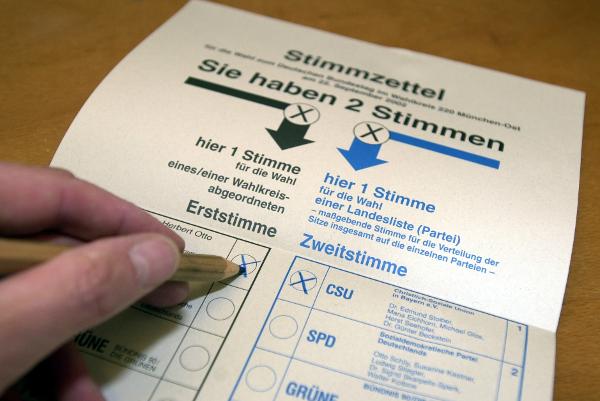Source

Source: picture-alliance / dpa (c) dpa
In the 2002 Bundestag elections, incumbent chancellor Gerhard Schröder (SPD) was challenged by Edmund Stoiber (CSU), minister president of Bavaria and chairman of the CSU. Many believed that Stoiber’s chances for success were better than those of CDU chairwoman Angela Merkel. Since the lower unemployment figures promised by Schröder in the 1998 election campaign had failed to materialize and the economy also remained sluggish, it seemed possible that Schröder’s government could be replaced by a coalition of the CDU/CSU and the FDP. But catastrophic floods in the eastern part of Germany in the summer of 2002 gave Schröder an opportunity to showcase his skills as an expert crisis manager. Additionally, his government’s categorical rejection of military action in Iraq had the backing of the overwhelming majority of the population. The election was remarkably close: the SPD and CDU/CSU each received 38.5 percent of the second votes, with the SPD squeezing out a narrow lead of just several thousand voices. The solid performance of Alliance 90/The Greens, whose share of second votes increased from 6.7 percent in 1998 to 8.6 percent in 2002, kept the red-green coalition in power.

Source: picture-alliance / dpa (c) dpa